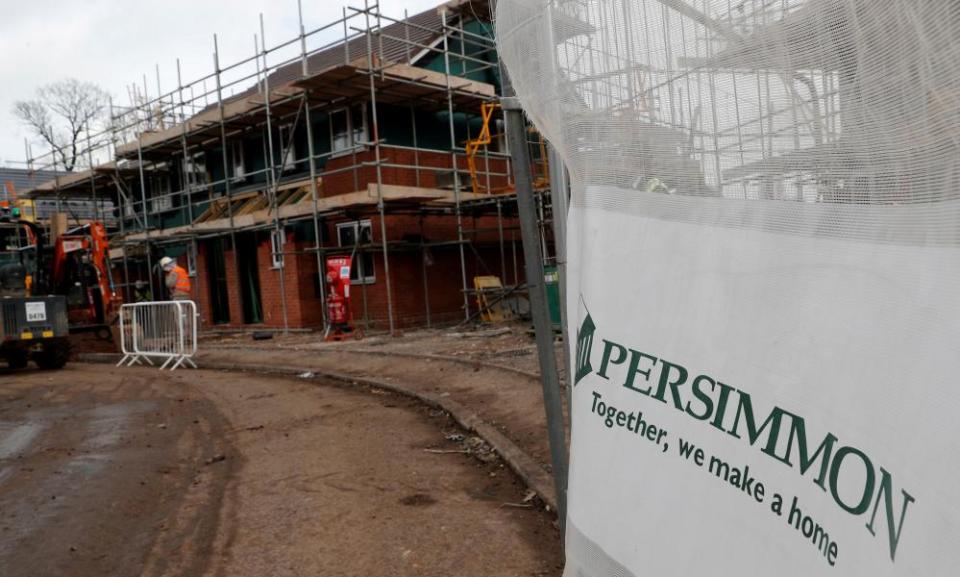Persimmon says first-time buyers struggling to afford new homes in UK

Sales of new homes to first-time buyers are struggling, according to the housebuilder Persimmon, as higher interest rates make mortgages less affordable.
The company, which is one of the UK’s largest domestic property developers, said people looking to get on the housing ladder were facing “stretched affordability” and less choice on home loans.
Rising mortgage rates have led to higher loan-to-value ratios for first-time buyers, “particularly in regions with higher house prices”, Persimmon said in a statement to the stock market on Wednesday.
The Bank of England is widely expected to raise interest rates for the 12th time in a row next month, by 0.25 percentage points to 4.5%, as it attempts to curb inflation, which unexpectedly remained above 10% in March.
Persimmon warned last month that housebuilders would face a “tough year” in 2023, in a further sign of the housing market cooling, and predicted sliding sales a decrease in profits for the year.
In its update to the market on Wednesday, the company reported a 42% drop in the number of new homes it sold between January and March, 1,136 properties compared with 1,950 in the same period last year. However, it said sales had begun to pick up in recent weeks.
Persimmon struck a more optimistic tone than it had in March, when it reported challenging trading conditions for the final months of 2022.
On Wednesday, the housebuilder said it was seeing “early signs of increasing consumer confidence”, particularly in demand for its three-bed homes as well as four- and five-bed.
Dean Finch, the chief executive of Persimmon, said: “Trading over recent weeks has offered some signs of encouragement, with visitor numbers up, cancellation levels normalising and sales rates continuing the steady improvement evident since the start of the year.”
If sales rates continue at present levels, the developer is forecasting completed house-sales for the year of between 8,000 and 9,000 homes, which would be towards the top end of its previous estimates.
The company added that sale prices for its homes remained “firm”, although the private average selling price of £276,000 marked a slight fall from £282,100 recorded at the end of 2022.
As a result of improved rates of homes sold over the past three months, Persimmon said its forward sales position had increased to £1.7bn since the start of the year, when it was £1bn.
However, the company said it was hard to predict how trading would develop during the rest of the year, but noted that long-term demand for new homes remained “robust”.
Persimmon’s shares rose by more than 4.5% in morning trade on Wednesday, making the company the biggest riser on the FTSE 100.
Persimmon is not the only company in housing sector to report increasing challenges facing first-time buyers. The property website Rightmove found that asking prices for the types of property popular with first-time buyers had reached record levels, even at a time when mortgage rates had made these homes less affordable.
First-time buyers are considered vital for the health of the housing market, as they are often the start of chains between other buyers and sellers.
Last month, UK house prices fell at their fastest annual rate since the fallout from the financial crisis in 2009, dropping on average by 3.1% to £257,122 in the year to March, according to Nationwide’s monthly survey.
House prices have been falling for the past seven months, according to the most recent figures, ever since the market was rocked by Liz Truss’s disastrous mini-budget, which sent mortgage rates climbing.

 Yahoo Finance
Yahoo Finance 